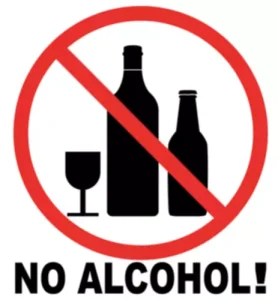Symptoms of Alcohol Withdrawal: Timeline and Signs of Danger

But treatment varies based on the severity of alcohol withdrawal and the likelihood that it could progress to severe or complicated withdrawal. Consuming alcohol seems to be a common trigger for seizures in people with epilepsy. Because of the risk of seizures and other serious symptoms, detoxing from alcohol should only be attempted with medical support. In a 2018 study in which 204 people with epilepsy reported consuming alcohol are alcohol withdrawal seizures dangerous in the last 12 months, researchers found that seizure worsening related to alcohol consumption was reported in 18.1% of these people. People with a history of alcohol misuse seem to have a greater risk of developing sudden unexpected death in epilepsy (SUDEP) than people with epilepsy with no history. People who chronically consume large amounts of alcohol seem to be more likely to have epilepsy than people who don’t.
Mild Symptoms
Any clinical intervention aimed at treating alcohol withdrawal symptoms, signs, or complications; and administered via any route. We excluded studies that examined psychosocial interventions alone, or supportive interventions alone. Those with epilepsy who have alcohol dependence and stop drinking suddenly have an additional risk of withdrawal-induced seizures. Healthcare providers typically prescribe short-term medications to relieve the symptoms of mild to moderate alcohol withdrawal. Alcohol withdrawal seizures (delirium tremens) occur when the body undergoes severe and unexpected nervous system changes after an alcohol-dependent person stops drinking.

Binge Drinking Seizures
They also do not cause changes in electroencephalographic (EEG) readings (brain activity tracings). The risk of experiencing alcohol withdrawal seizures is highest within 48 to 96 hours after quitting alcohol, as are the chances of suffering from severe agitation and vivid hallucinations. If you begin experiencing severe symptoms of AWS, it’s important to seek immediate medical attention. The sooner you begin treatment, the better your chances are of preventing life threatening complications. To maintain homeostasis in the CNS, inhibitory signals from the GABAergic system are balanced by excitatory neurotransmitters such as glutamate. Alcohol, a CNS depressant, stimulates the GABAergic system and, in acute intoxication, causes a range of clinical manifestations such as disinhibition, euphoria, and sedation.
Drink in Moderation and Avoid Binge Drinking
- The current evidence favors symptom-triggered treatment, as it reduces the average length of stay, the total dosage of administered benzodiazepines, and the level of patient sedation.
- There is relatively little data on the relationship between alcohol and seizures but roughly 25% of alcoholics suffer from seizures, most of which occur during withdrawal [42].
- The first step towards taking control over your life is admitting you need help dealing with your alcohol abuse.
- After a person suddenly stops drinking after long periods of time, the brain struggles to function due to the chemical imbalance and absence of alcohol.
Published clinical guidelines recommend stratifying patients with alcohol withdrawal based on their risk of developing complications (e.g., generalized tonic-clonic seizures and delirium tremens) [15,16,17,18]. These guidelines are largely limited to the primary care and outpatient settings and do not provide specific guidance for ED clinicians [15,16,17]. We identified 13 studies that met inclusion criteria for our review (7 randomized controlled trials and 6 observational studies). We divided studies based on intervention and summarized evidence narratively. Benzodiazepines decrease alcohol withdrawal seizure recurrence and treat other alcohol withdrawal symptoms, but no clear evidence supports the use of one benzodiazepine over another. It is unclear if symptom-triggered benzodiazepine protocols are effective for use in the ED.

What Are the Risk Factors for Alcohol Withdrawal Seizures?
The assessment should also include a validated measure of withdrawal symptom severity, ideally with the same instrument as the initial assessment. Approximately 2–5% of those who misuse alcohol will experience alcohol withdrawal seizures. However, you do not have to experience alcohol dependency to have withdrawal seizures. These can also occur due to drinking a large amount of alcohol in a short period of time, also called “binge drinking.” People with a history of detoxification from substances like alcohol are at a higher risk of experiencing seizures. Two commonly employed strategies are fixed multiple daily dosing and symptom-triggered treatment for individuals requiring medications to manage alcohol withdrawal. In fixed multiple daily dosing schedules, patients are typically placed on a gradual, tapering benzodiazepine schedule once their withdrawal symptoms are stabilized.

- The alcohol withdrawal timeline varies, but the worst of the symptoms typically wear off after 72 hours.
- It’s not necessary to have all the above symptoms before seeking medical help.
- The sooner you begin treatment, the better your chances are of preventing life threatening complications.
- All heavy drinkers admitted to hospital should be monitored for the emergence of symptoms and signs indicating withdrawal, many hospitals using a structured withdrawal scale to monitor newly admitted patients.
- Factors that facilitate seizures chronically or temporary lower the threshold for seizure occurrence by interfering with generic neuronal excitability [39].
The brain is highly active and this phase is called the post-ictal phase. There were seven RCTs, two retrospective cohort studies, and four retrospective chart reviews. Before full-text screening, articles were flagged for secondary review by the principal investigator (JM) as needed.
Managing withdrawal
Ambulatory withdrawal treatment should include supportive care and pharmacotherapy as appropriate. Benzodiazepines are first-line therapy for moderate to severe symptoms, with carbamazepine and gabapentin as potential adjunctive or alternative therapies. Physicians should monitor outpatients with alcohol withdrawal syndrome daily for up to five days after their last drink to verify symptom improvement and to evaluate the need for additional treatment.
Likewise, alcohol withdrawal may precipitate seizures in patients with idiopathic or symptomatic epilepsy. The observation that some patients have ingested alcohol within an hour of a first seizure has led some investigators to postulate that ethanol intoxication can lower seizure threshold. Repeated detox attempts can increase the risk of a severe withdrawal syndrome, including alcohol withdrawal seizures, due to the kindling effect, and a severe withdrawal syndrome called delirium tremens (DTs). Chronic alcohol abuse is linked to an increased risk of epilepsy (seizure disorder). The sooner you seek professional treatment and get sober, the better your chances of avoiding these serious health complications. Alcohol withdrawal syndrome can range in severity from mild to fatal, making it crucial for patients to present to care for evaluation of their symptoms.
Read on to learn about the symptoms of AWS, as well as how it can be treated or prevented. To find another treatment program, browse the top-rated addiction treatment facilities in each state by visiting our homepage, or by viewing the SAMHSA Treatment Services Locator. The helpline at AddictionResource.net is available 24/7 to discuss the treatment needs of yourself or a loved one. This helpline is answered by Legacy Healing Center, an addiction treatment provider with treatment facilities in California, Florida, Ohio, and New Jersey.
